People often seem to care more about whether their fast-food order is mixed up than if they get the wrong prescription medication, according to pharmacist Matthew Grissinger, RPh, FISMP, FASCP. They just want to get in and out fast, and never have any questions.
“People aren’t asking questions as it is, that itself has to change,” says Grissinger, the director of error reporting programs at the Institute for Safe Medication Practices (ISMP), a non-profit devoted to preventing medication errors.
But by asking questions—starting in the prescriber’s office—people can help prevent rare but potentially deadly medication errors, and make sure they’re using their medication in the safest and most effective way. In fact, the ISMP calls patients “the last line of defense in preventing medication errors.” (Here are 10 medication mistakes that could hurt your health.)
If pharmacy staffers seem like they’re too busy to answer questions, that should be a big red flag, says Michael T. Rupp, PhD, FAPhA, a professor of pharmacy at Midwestern University in Glendale, Arizona.
“Find a pharmacy that is well-organized, well-managed, and is adequately staffed for the volume of prescriptions it does,” Dr. Rupp says. “It should run like a well-oiled machine and staff should never appear frazzled, frantic, or fatigued. Even a competent and conscientious pharmacist is challenged to provide quality care in a flawed practice setting.”
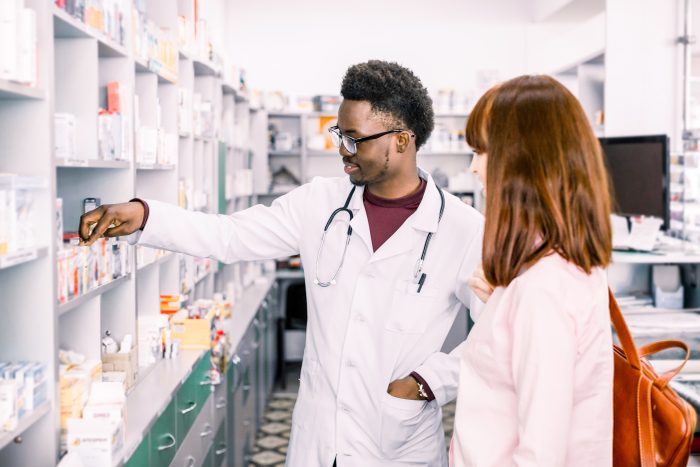
May I speak with the pharmacist?
Whenever you’re prescribed a new medication, ask your physician to confirm the name and strength of the prescription, how and when to take it, and the name of the drug, Grissinger says.
And when you pick up a prescription, always ask to speak with the pharmacist to review how to take the medication, the ISMP advises. This is a safety check that could save your life, or the life of a family member, as a recent case reported to ISMP illustrates. (Pharmacists are required by law to offer medication counseling with each new prescription.)
One father noticed that the dosage of a seizure medication for his newborn son seemed too high. Because he’d reviewed the dosage and information with the baby’s doctor, he noticed that something wasn’t right.
However, ISMP points out, “had the father talked to the pharmacist when he picked up the filled prescription, the error would likely have been caught in the pharmacy before going home.”
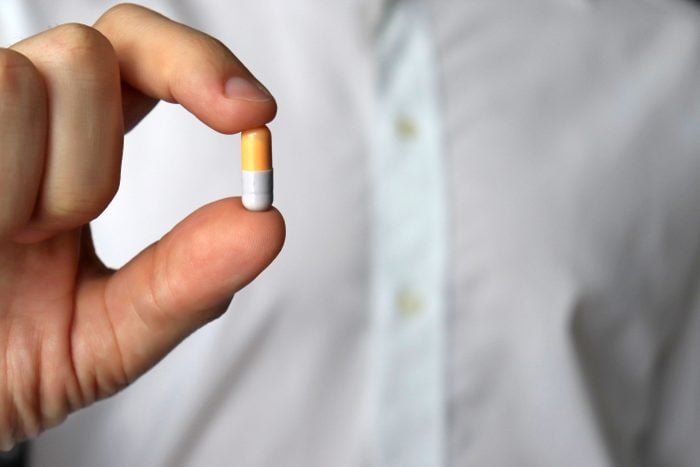
Why am I taking the medication?
You should also ask your doctor why he or she is prescribing the medication, and request that they record the indication on your prescription, Grissinger advises.
And at the pharmacy, always confirm the name of the pills and the reason you are taking them with your pharmacist. For refills, safety experts advise taking a look inside the bottle to see if the tablets look the same as those in the last prescription before accepting the medication.
“If anything does not seem right, speak up, either there in the pharmacy or call back later,” says Rupp. “As someone who does expert witness work in pharmacy malpractice cases, it is distressing to see how often the patient saw something that didn’t seem right but did not mention it to the pharmacist.”
He adds: “That medication that looks different than it did last time might just be a new generic (although the pharmacist should have alerted you if that were the case), but it also might be the wrong medication entirely. If you see something, say something.”
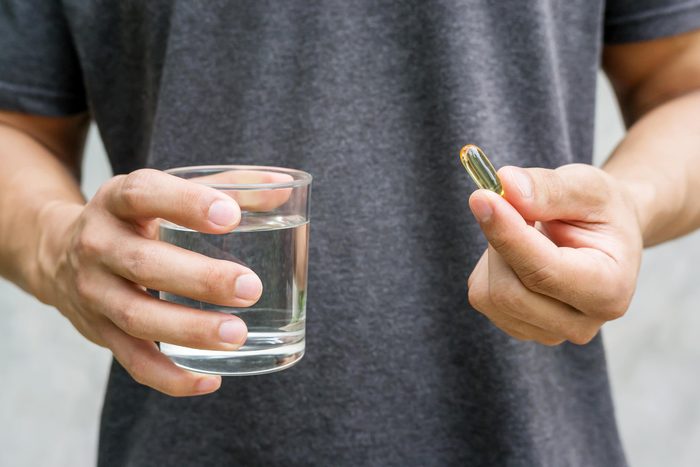
How should I take the medication?
Confirm how much of the medication you should be taking, and how often, with your physician and your pharmacist, and whether you should be taking doses at a particular time of day, Grissinger says.
Also, ask about whether you should be taking the medication with food or on an empty stomach, he adds.
“There is real value in establishing a relationship with individual pharmacy staff—both pharmacists and technicians—who get to know you and are familiar with your medication therapy,” Rupp notes.
This is particularly important for people who must take multiple medications or are on other types of complex therapy, Rupp says. “Ideally, patients would have their prescriptions filled and dispensed during days and times when the staff they know are on duty.” Here’s why your pharmacist probably knows more about your health than your doctor.

Should I avoid certain foods, or alcohol, while on this medication?
Drinking alcohol can make some drugs less effective; it can also exacerbate liver damage due to certain medications, according to the National Institute on Alcohol Abuse and Alcoholism. Some drugs, on the other hand, can intensify alcohol’s effects.
Certain foods can also change the effects of drugs in the body in potentially harmful ways. For example, the U.S. Food and Drug Administration (FDA) warns that grapefruit juice interferes with an enzyme in the small intestine and liver, CYP3A4, that normally helps clear certain medications from the body, including some cholesterol-lowering medications and blood pressure medications. This can lead to the drug accumulating in the blood, potentially reaching toxic levels.
Grapefruit can have the opposite effect with some drugs, the FDA notes, diluting their effectiveness by blocking transporters that would normally shuttle the active ingredient into cells.
(Avoid these 6 drug-food pairings to prevent weaker drug efficacy.)
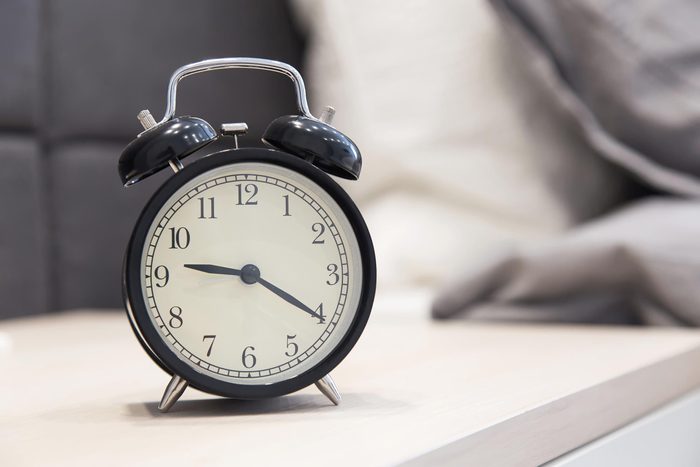
What should I do if I forget to take the medication?
Knowing what to do if you miss a dose of prescribed medication—before you leave the pharmacy—can save a lot of aggravation and worry, Gissinger says.
And getting the details from your pharmacist is essential, because different drugs and dosing schedules may require different catch-up strategies, according to the University of California-San Francisco School of Pharmacy Center for Consumer Self Care. For some medications, you can skip a dose and just wait until the next. With others, for example, birth control pills, you may need to take the missed dose even if it means doubling up.
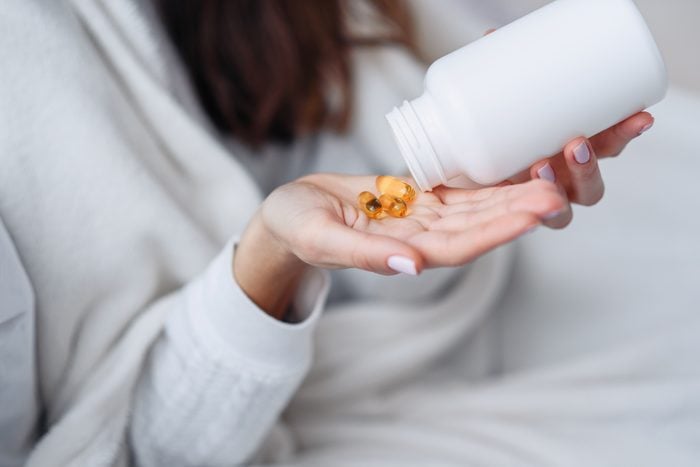
How long will I need to use the medication?
Get the specifics on how long you can expect to be taking the prescribed medication, Grissinger advises. You may need to take the drug for the rest of your life—but there’s a good chance you don’t have to.
In a 2018 study published in Annals of Family Medicine, researchers found out of more than 50,000 primary care patients, 43 percent may have been on medications for an inappropriately long time. The researchers called this extended medication use “legacy prescribing.” Antidepressants, drugs for treating osteoporosis known as bisphosphonates, and proton pump inhibitors used to treat heartburn are particularly prone to legacy prescribing, they noted.

Is it ok if I take this new medication with my other medications?
Don’t assume that your pharmacist can always warn you if a new prescription might interact with other medications or supplements that you’re taking, Grissinger says.
Your best defense against possible drug-drug interactions is preparation—and more questions. Grissinger recommends making a complete list of the prescription and over-the-counter medications you take, and any supplements, with dosage information; carrying it with you everywhere; and updating it as necessary. (Don’t know if you’re using your over-the-counter meds correctly? Read how to use them correctly.)
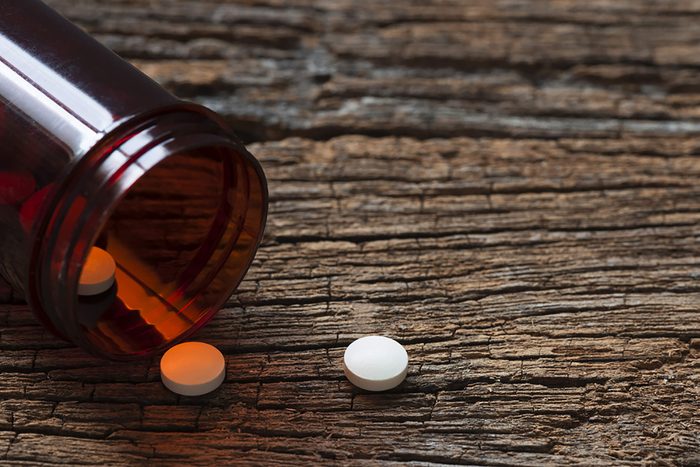
How should I store the medication?
“The medicine cabinet that you have in your bathroom really isn’t the best place to put your medications,” Grissinger says. Your medication can be exposed to hot temperatures and high humidity, and it also isn’t necessarily the most child-safe spot.
Most medications can be kept in a cool dark place out of the reach of children, like an upper kitchen cabinet, he adds, although some need to be refrigerated. Be sure to ask the pharmacist about any special storage instructions.
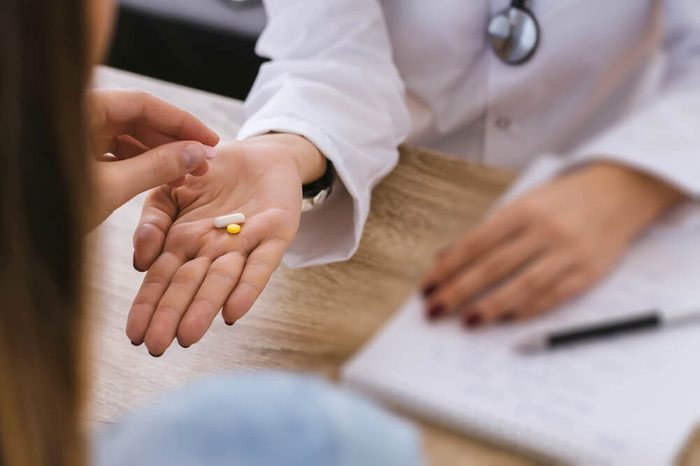
What should I monitor to make sure my treatment works?
This is a question that you should ask both the doctor prescribing the medication, and your pharmacist, Grissinger says.
You should also feel comfortable letting your doctor and pharmacist know if you are having trouble taking a medication, he advises. But many of us don’t; a 2017 NPR-Truven Health Analytics Health Poll found that one-third of adults had stopped taking a medication without telling their doctor.
Be sure to let your physician and pharmacist know if you’re having difficulty with a medication, Grissinger says, because there may be alternatives available.
